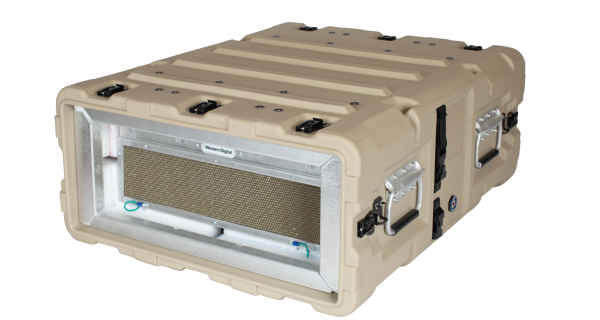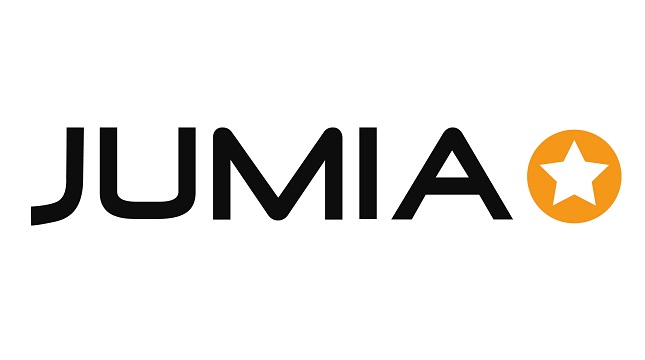E-Business
Western Digital Fuels Faster Decision Making at the Edge in Harsh Remote Environments

Providing the foundation for the world’s essential data infrastructure, Western Digital has announced the availability of its new high-performance Ultrastar® Edge server family that brings compute closer to where data is generated for faster processing, lower latency and real-time decision making, even when disconnected.

With the growing adoption of 5G, IoT and the cloud, businesses and consumers expect super-fast performance with their applications. This is creating demand for new, distributed intelligent architectures outside of core data centers to help ingest, analyze and transform data at the edge.
In addition, organizations are running applications in extremely remote locations, such as deserts, seas or jungles, and are driving the need for ruggedized compute and storage where networks can be expensive, intermittent or nonexistent.
Designed for cloud service providers, telcos and system integrators, Western Digital’s Ultrastar Edge servers are easy to transport, deploy and scale in the field, at colocation (colo) facilities, in a factory, or in remote data centers.
The new family includes the Ultrastar Edge-MR, an extremely rugged, stackable and transportable server for military and specialized field teams working in harsh remote environments, and the Ultrastar Edge, a transportable 2U rack-mountable server with a portable case for colos and edge data centers. Both solutions are now sampling and orderable with general availability beginning CQ4 2021.
“More compute capacity is needed at edge locations as latency-sensitive applications are proliferating. We expect server deployments at edge locations to double through 2024, totaling an estimated five million units as they are an essential component in enabling new innovations and products, cloud services, remote campuses, CDNs, and virtually any vertical industry that relies on IoT, sensor or remote data,” said Manoj Sukumaran, senior analyst, Data Center Compute at Omdia.
“In the world of 5G and IoT, compute must happen at the edge – closer to devices, end-users and the machines that are generating the data – as latency and bandwidth are essential factors for success. We’re glad to see Western Digital enter the market as the industry needs reliable products from vendors they can trust.”
“As a storage technology leader, we’re constantly looking ahead and anticipating how we’ll continue to serve our customers’ needs,” said Kurt Chan, vice president, data center platforms at Western Digital.
“The growth in data creation at the edge, the opportunities to extract value from that data, and the total available markets and customers innovating and doing work at the edge, gives us a great opportunity for our new Ultrastar Edge server family.”
The Ultrastar Edge-MR is an extremely rugged, stackable solution that is designed and tested in accordance with MIL-STD-810G-CHG-1 standards for limits of shock and vibration, and to the MIL-STD-461G standard for electromagnetic interference.
The unit is also rated IP32 to provide ingress protection against water and debris. Whether conducting a military operation, doing research in the Amazon, or analyzing data during oil and gas explorations, the Ultrastar Edge-MR can handle extremes.
Both Ultrastar Edge solutions also feature the Trusted Platform Module 2.0, a tamper-evident enclosure and is built to meet FIPS 140-2 Level 2 security standard to help store, secure, transfer and disseminate sensitive data.
“From healthcare to intelligence missions, it’s critical for the federal government and its agencies to gather information quickly, and deliver insight when and where it’s needed, including at the network’s edge,” said Jeff Johnson, co-founder, Aeon Computing.
“We’re thrilled to have the new Ultrastar Edge-MR server in our arsenal, as meeting these stringent military specs is no small feat. We can now deliver a secure, rugged solution that brings the power of the cloud to virtually any edge or tactical environment around the world.”
The core of each Ultrastar Edge solution is a durable, high-speed server that supports up to 40 cores with two 2nd Intel® Xeon® Scalable Processors, an NVIDIA® T4 GPU and eight Ultrastar NVMe™ SSDs providing up to 61TB of storage.
This unique combination delivers blazing speeds and capacity for real-time analytics, AI, deep learning, ML training and inference, and video transcoding at the edge. It features two 50Gb or one 100Gb Ethernet connection for sending critical data back to the cloud or data center when connected.
E-Business
Firm Enhances its Security Awareness Platform with SCORM and PDF Support

Kaspersky has introduced an update to its Automated Security Awareness Platform, adding full support for PDF and SCORM (Sharable Content Object Reference Model) – the industry-standard protocol for deploying and managing e-learning content.

The enhancement enables organisations to build fully customised cybersecurity training programmes that reflect their infrastructure, risk profile, and internal policies, while continuing to benefit from Kaspersky’s expert-driven security content and phishing simulations.
According to the Kaspersky report titled “Redefining the Human Factor in Cybersecurity”, employees responding to phishing attacks was one of the main causes of cyber incidents in companies worldwide, accounting for 21% of cases among other reasons.
At the same time, additional Kaspersky research reveals that social engineering attacks are predicted to increase more than any other type in the nearest future, with 87% of respondents believing that social engineering attacks will become even more effective due to the use of AI tools.
The new Kaspersky Automated Security Awareness Platform (Kaspersky ASAP) update directly addresses several persistent challenges such as reducing the number of human-related incidents, cutting time spent on managing training programmes, decreasing regulatory and compliance risks, and minimising potential legal or reputational damage stemming from cybersecurity breaches.
With the new SCORM support, the platform becomes even more flexible: companies can now upload, track, and manage their own SCORM-based learning materials directly within the system. In addition, companies can accelerate their programmes by using easier-to-create PDF-formats.
This allows organisations to tailor training to their specific technology stacks and emerging threats targeting their industry or region. Businesses that have already invested in third-party SCORM courses or internal learning development can now seamlessly reuse their existing modules, protecting their prior investments while strengthening their cybersecurity posture.
The combination of Kaspersky’s embedded content built on real cases uncovered by the company’s world-class experts with customers’ PDF materials or SCORM modules enables a true best-of-breed approach to human risk management.
Organisations can supplement Kaspersky’s up-to-date cyberattack scenarios with internal policies, unique workflows, and industry-specific lessons, ensuring training resonates with employees and reflects real operational challenges.
“Human behaviour remains one of the most unpredictable elements in cybersecurity and also one of the easiest for attackers to exploit. By adding SCORM support to Kaspersky Automated Security Awareness Platform, we’re giving organisations the flexibility to build training programmes that truly match their internal realities.
“Combined with Kaspersky’s expert-driven content and real-world attack data, this update empowers companies to create more adaptive, relevant, and impactful awareness programmes than ever before,” comments Svetlana Kalashnikova, Security Awareness expert at Kaspersky.
E-Business
NDPC, 60 DPAs Collaborate on Enforcing Privacy Rights in the Use of Al

Nigeria Data Protection Commission (NDPC) has joined sixty (60) other Data Protection Authorities (DPAs) in endorsing the “Joint Statement on Al-Generated Imagery and the Protection of Privacy.”

NDPC
The Joint Statement was coordinated by the International Enforcement Cooperation Working Group (IEWG) of the Global Privacy Assembly.
This underscores the growing concerns regarding the privacy risks posed by Artificial Intelligence tools capable of generating realistic images and videos of identifiable individuals.
The Joint Statement highlights concerns over the misuse of Al-powered tools to create non-consensual imagery, defamatory content, and other harmful materials, particularly affecting children and vulnerable groups.
It calls on organisations to implement strong safeguards, ensure transparency, provide effective content removal mechanisms, and comply fully with applicable data protection laws.
The current effort forms part of a continuum of steps being taken by Nigeria to ensure the responsible use of Al. It will be recalled that the Honourable Minister of Communications, Innovation and Digital Economy, Dr ‘Bosun Tijani, led the initiative for the development of the National Al Strategy.
The NDPC also issued the General Application and Implementation Directive (GAID), which, amongst others, mandates privacy by design and privacy by default in the development and deployment of Al tools.
The National Commissioner/CEO of the NDPC, Dr Vincent Olatunji, has directed that the Nigeria Data Protection Act (NDP Act) Compliance Audit Returns (CAR) by data controllers and processors of major importance will serve as a yardstick for monitoring and evaluating responsible use of Al for data processing in Nigeria.
E-Business
Jumia Tech Week 2026 Begins with Tech Deals on Smartphones, Electronics, and Everyday Technology

Jumia Nigeria has announced the launch of Jumia Tech Week 2026, a two-week campaign offering customers access to discounted technology products across key categories, including smartphones, computing, home entertainment, and wearable devices.

Starting from March 2 to March 15, Jumia Nigeria’s Tech Week 2026 is themed ‘Tech Products for Less’ – a deliberate commitment by the e-commerce giant to drive down the cost of technology products for Nigerian consumers. The campaign offers significant price reductions across key product categories, enabling more Nigerians to access the devices they need at prices that reflect the company’s dedication to affordability and consumer value.
Jumia Tech Week will feature deals across a wide range of product categories, including mobile phones, computer systems and accessories, televisions and audio equipment, gaming products, home appliances, portable power solutions, health technology,, and wearable devices.
Customers will also have access to curated recommendations, including top smartphone deals, must-have accessories, gaming essentials, and home technology upgrades.
According to Temidayo Ojo, CEO of Jumia Nigeria, the campaign reflects Jumia’s broader commitment to making everyday technology more accessible to Nigerians.
“Technology has become an essential part of everyday life, and access to the right devices enables more people to participate fully in the digital economy,” said Ojo. “At Jumia, we remain focused on expanding access and improving the shopping experience as we continue to build Nigeria’s everyday retail destination.”
The campaign will include a range of customer engagement initiatives such as flash sales, brand days, anchor deals and interactive activities designed to enhance the online shopping experience.
Special highlight periods, described as Explosion Days, will take place on March 6 and March 13, featuring limited-time offers across selected technology categories. Customers will also be able to participate in interactive activities, including product-based games, treasure hunts,, and live shopping sessions during the campaign period.
The campaign will feature participation from leading brands including Oraimo, Silver Crest, Samsung, Ecoflow, Nivea and Aeon, offering customers a wide selection of technology, household and lifestyle products. Early access promotions already begun during the teaser period from February 16 to March 1, allowing customers to preview selected deals ahead of the official launch.
Jumia Tech Week forms part of the company’s broader strategy to expand e-commerce adoption by improving access to essential products and enhancing the customer experience across its platform. As Nigeria’s e-commerce market continues to grow, Jumia remains focused on strengthening its product assortment, logistics capabilities, and digital experience to serve customers better nationwide.
Customers can participate in the campaign by using the Jumia mobile app or visiting the Jumia website and following the conversation online using #JumiaTechWeek.

 Telecom2 days ago
Telecom2 days agoSunil Bharti Mittal Conferred GSMA Lifetime Achievement Award for Transforming Global Telecommunications

 Telecom2 days ago
Telecom2 days agoWhy Digital Trust Matters: Secure, Responsible AI for African SMEs?

 General News2 days ago
General News2 days agoKrishnan Exits Africa Data Centre to Embark on Professional Chapter

 E-Business2 days ago
E-Business2 days agoJumia Tech Week 2026 Begins with Tech Deals on Smartphones, Electronics, and Everyday Technology

 General News3 days ago
General News3 days agoLeo Stan Ekeh at 70; thanks Tinubu, Obasanjo, Nigerians, Global Tech Community

 Broadcasting2 days ago
Broadcasting2 days agoNCAA Orders Overland Airways to Refund VAT Charged on 2025 Tickets

 Telecom2 days ago
Telecom2 days agoHouse Probes Fintech Regulation via Public Hearing on New Commission Bill

 News2 days ago
News2 days agoAfDB Supports Francophone Africa Start-ups with €6.5M

























